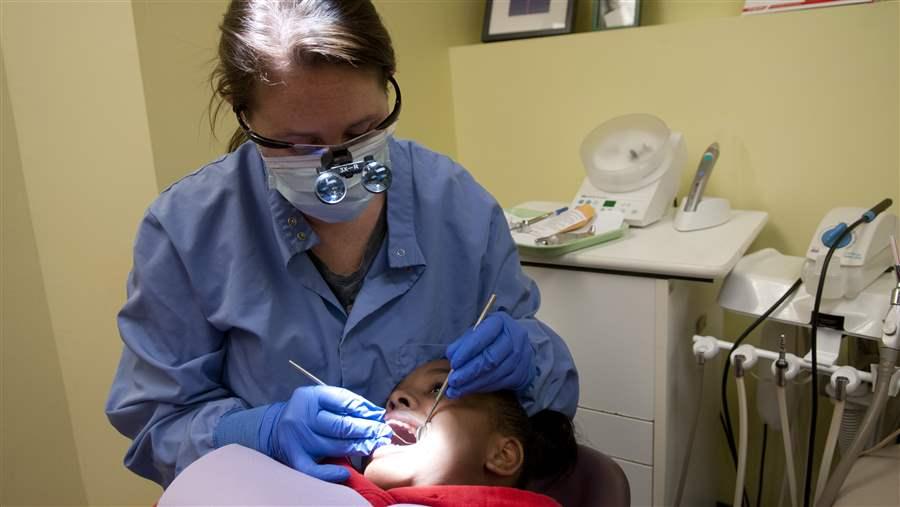Vermont Passes Legislation Authorizing Dental Therapists
Midlevel providers will help dentists deliver care to more underserved residents statewide
 © Dawn Villella/The Pew Charitable Trusts
© Dawn Villella/The Pew Charitable TrustsVermont is the most recent state to allow dentists to hire midlevel dental providers known as dental therapists.
On Monday, June 20, Vermont Governor Peter Shumlin (D) signed Senate Bill 20 into law, authorizing the practice of dental therapy. After a five-year campaign by the Vermont Oral Health Care for All Coalition, Vermont became the third state, joining Maine and Minnesota, to allow dentists to hire these midlevel providers. Dental therapists also work with dentists caring for Native American tribes in Alaska, Oregon, and Washington.
Like millions of people across the country, many Vermonters have limited access to oral health care. Nearly 100,000 people in the state went without care in 2011 and 2012, and 38 percent of children covered by the state's Medicaid program received no dental health services in 2014.1
The bill, which passed the state Senate in early 2015, received strong support in the Vermont House. In a recent op-ed in the Bennington Banner, Representative Kiah Morris (D-Bennington) said: "Dental therapy is such a powerful antidote to our state's dental care crisis because it puts providers in communities where people struggle to get the care they need. Once they graduate, dental therapists will be able to practice in a range of settings, such as community health centers, school-based health clinics, private practices, nursing homes, and mobile dental vans."
Under the new law, dental therapists in Vermont will work under the supervision of dentists, either in the same office or remotely, with the help of telehealth technology. This flexibility will allow dental therapists to provide care to underserved people in a range of private and public settings.
Vermont Technical College (VTC) plans to educate the state's dental therapists. The proposed curriculum, presented to the Legislature this spring, will extend VTC's dental hygiene education—the only such program in the state—by one year, creating a four-year dental therapy program. VTC plans to apply for accreditation for the program as soon as possible.
John Grant directs the dental campaign and Andrew Peters oversees state campaigns on dental sealants and dental therapy at The Pew Charitable Trusts.
Endnote
- Brian Robertson and Jason Maurice, 2012 Vermont Household Health Insurance Survey: Comprehensive Report, Vermont Department of Financial Regulation Insurance Division, http://hcr.vermont.gov/sites/hcr/files/pdfs/survey/VHHIS_2012_Final_Report.pdf.






